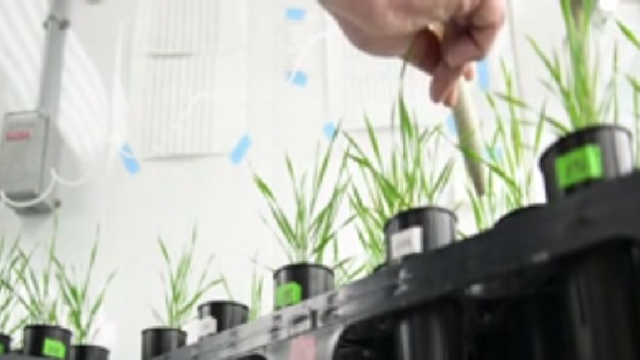It may be possible to grow better, healthier crops with just a syringe and some careful observation. That’s all you need to breed better soil microbes, which can have a big effect on how well plants grow, according to new research.
Biologists Ulrich Mueller of the Univeristy of Texas and Joel Sachs of the University of California, Riverside, noticed that several of the Arabidopsis plants (a relative of everyone’s favourite vegetables: cabbage and broccoli) in their lab were larger than the others. The plants were genetically identical, so the size differences couldn’t be genetic. Mueller and Sachs reasoned that some plants grew larger than others thanks to differences in the microscopic organisms living in the soil around their roots. Soil microbes help convert nutrients into forms that are easier for plants to take up and use, among other useful tasks.
Mueller and Sachs harvested microbes from the soil around the roots of the larger plants, then transferred it to sterile soil and planted seeds. This is the same kind of artificial selection that farmers have used for centuries to breed bigger, healthier livestock — except that now, the technique is being used to breed more beneficial microbes for plants.
They repeated this process several times, selecting the best out of each generation of soil microbes based on which plants grew largest. Over time, the plants grew larger, which Mueller and Sachs say means that their artificial selection had succeeded in producing a better population of soil microbes. They published their results in the journal Trends in Microbiology.
And that could mean an easier, more affordable way for farmers to improve their crops’ production and health. “Selecting artificial microbiomes may be a cheaper way to help curb plant and animal diseases rather than pesticides and antibiotics or creating genetically modified organisms,” Mueller said in a press release. “The methods to generate host-mediated artificial selection on root microbiomes are super simple. All you need is a syringe and a filter, and any farmer in any location could potentially do this to engineer microbiomes that are specific to the problems of the specific location where the farmer attempts to grow food.”
Top image: Ulrich Mueller/UT Austin/TRENDS IN MICROBIOLOGY 2015
